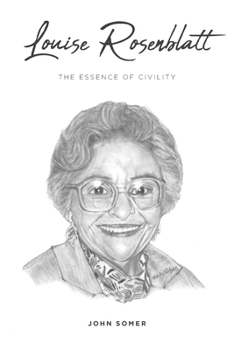Louise Rosenblatt: The Essence of Civility
Louise Rosenblatt: The Essence of Civility is a philosophical, scientific, and practical justification of Rosenblatt's argument that struggling with words develops the mind to cope with ambiguities of reality.
In 1938, Louise Rosenblatt wrote about literature and exploration and addressed an ancient dilemma. The problem was introduced centuries ago when the Akkadians wrote the first dictionary. Writers had depended on words to clarify social conflicts, and eventually, they realized the ambiguity of language. This problem existed beyond the Renaissance.
In the eighteenth century, languages received a resounding blow. The deists and scientists preferred rational numbers to arbitrary words. The result was that ancient writings lost their grip on Western civilization. In an attempt to rescue social harmony, Mathew Arnold, in the nineteenth century, argued that literature at least contained the wisdom of the ages.
In the twentieth century, however, literary critics rationally studied a work of literature, and scientists studied the roots of languages. Both ignored the value of reading literature. Today, technology absorbs and guides our lives. Rosenblatt's ideas are now crucial. When readers struggle with the ambiguities in words, they also struggle with their conceptions of reality. In this process, the brain learns to accept challenges, to rise above rigid assumptions, and to acquire the flexibility to accept the human condition.





